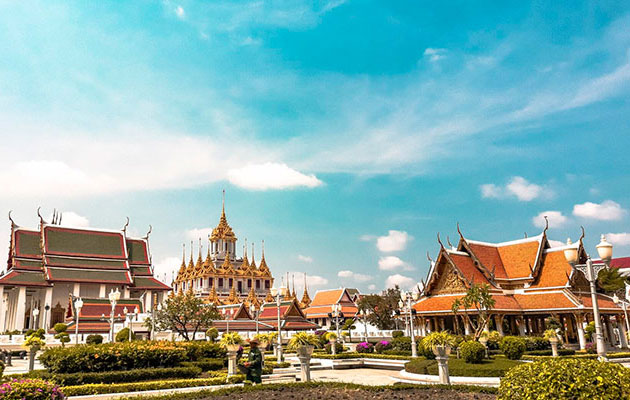Workplace Discrimination and Harassment: Protecting Employee Rights Under Thai Laws
In today's modern workplace, fostering an environment of respect and fairness is one of the keys in the creation of a positive workplace environment. However, due to unclear legal frameworks, workplace discrimination and harassment remain persistent challenges. Thailand's laws have specific but also limited provisions designed to protect employees from discrimination and harassment. Nevertheless, understanding these concepts are essential in the creation of a safe and productive workplace, so as to foster a higher level of employee happiness and engagement, and thus instilling a more productive atmosphere in the long term.
I. Discrimination in the Workplace
This refers to any unequal or unfair treatment of employees based on certain personal characteristics, such as gender, race, nationality, disability, religion or age. Under the Thai Labour Protection Act B.E. 2541 (1998) (the “LPA”), it does not explicitly list all forms of discrimination, but generally prohibits gender discrimination in terms of whether the employee is male or female. For instance, any employment decision that disadvantages an employee based solely on their gender can be considered discriminatory. To illustrate this, relevant legal provisions regarding discrimination under Thai law are as follows:
- Section 15 of the LPA states that: “an employer shall treat male and female employees equally in their employment, except where the employer is prevented by the nature or conditions of the work from doing so”.
- Section 53 of the LPA states that: “an employer must set equal wages, overtime pay, holiday pay and overtime on holiday pay to be paid to employees who perform work of the same nature, quality and quantity, or work that has equivalent value, regardless of whether the employee is male or female”.
Regardless of the gender, employees should be treated fairly with respect to recruitment, compensation, promotion, pay and other employment conditions. Discriminatory practices that violate these principles can lead to serious legal consequences, including but not limited to litigation suits from employees. In particular, the protection against discrimination under the LPA seems to be rather outdated because it focusses mainly on gender issues regarding males and females. To be more proactive in the modern work environment, employers are strongly encouraged to have a policy in place to cover all types of discriminations, not merely based on the gender of the employees. Furthermore, in terms of gender discriminations, it should be provided for gender-neutral protection and should not be limited to merely male and female.
II. Harassment in the Workplace
This involves unwanted or inappropriate behaviour which creates a hostile or offensive work environment. The most prominent forms of harassment in the workplace in Thailand are sexual harassment and power harassment.
Sexual harassment is clearly addressed by the LPA and Thai Criminal Code. Under the LPA, it prohibits an employer and supervisor from committing sexual harassment, of which Thai court’s interpretation requires a certain degree of seriousness of action towards the employees in order to constitute as a sexual harassment. Offences under the Thai Criminal Code cover sexual assaults that typically involve physical abuse rather than mere verbal communication. In light of this, relevant legal provisions regarding harassment under Thai laws are as follows:
- Section 16 of the LPA states that: “An employer, a person in charge, a supervisor, or a work inspector is forbidden from committing sexual abuse, harassment or nuisance against an employee”.
- Section 397 of the Criminal Code states that: “Whoever acts in any way towards another person which is a bullying, intimidating, threatening or causing embarrassment or annoyance, shall be punished with a fine not exceeding Baht 5,000.
If the offence under paragraph one is committed in a public place or in front of the general public, or is committed in a manner likely to cause sexual harassment, the offender shall be punished with imprisonment not exceeding one month, a fine not exceeding Baht 10,000, or both.
If the offence under paragraph two is committed by virtue of the offender having power over the victim due to his or her relationship as a supervisor, employer or other person with power over him/her, the offender shall be punished with imprisonment not exceeding one month, a fine not exceeding Baht 10,000, or both.”
Power harassment is often perceived as an action when those in positions of authority, such as managers or supervisors, abuse their power to belittle, intimidate or control their subordinates. This type of harassment is especially harmful because it exploits power dynamics in the workplace, creating and fostering an environment where victims may feel powerless to challenge or report the behaviour without fear of retaliation. However, Thai law does not expressly specify what actions should be considered as power harassment; neither do they mention the specific punishments to be imposed on a wrongdoer. Hence, this needs to be addressed and determined from a general sense rather than a strictly legal perspective, or it could be interpreted based on the rules and regulations outlined by the employer, if any.
When performing business in Thailand, there are various steps that the employer should take in order to prevent discrimination and harassment in the workplace, such as implementing anti-discrimination and anti-harassment policies, reviewing and updating those policies regularly, and establishing complaints and reporting procedures, as well as providing employee training sessions, awareness programmes and workshops on how to handle complaints, and respond to potential harassment incidents effectively.
This is intended merely to provide a regulatory overview and not to be comprehensive; it is NOT a provision of legal advice. Should you have any questions on this or on other areas of law, please do not hesitate to contact the following:
Chanakarn Boonyasith
Partner
Pattaranun Hanwongpaiboon
Associate








Chanakarn has particular in-depth expertise in the practical side of the legislative system of labour & employment law and personal data protection law. For the Labour & Employment practice, she engages in both advisory work and litigation, as well as drafting and reviewing legal documents, negotiating settlements, interviewing employees (particularly those accused of wrongdoing), managing whistleblowing hotlines and processes, providing trainings and various types of employment law advice, and representing clients in numerous court cases and in hearings before the labour authorities. For the Personal Data Protection practice, she assists her clients through the entire process, from providing training, analysing how clients handle personal data transactions, summarising clients’ data flow, providing legal advice, and drafting necessary legal documents for her clients. Chanakarn’s strategy is to provide detailed, accurate advice and flexible solutions, adapted to meet her clients’ needs. She excels in simplifying complex matters and equipping her clients to make the right decisions. She receives consistently strong feedback from her clients regarding the quality of her work. She has been ranked for labour and employment practice in Chambers Asia Pacific 2022 and 2023.